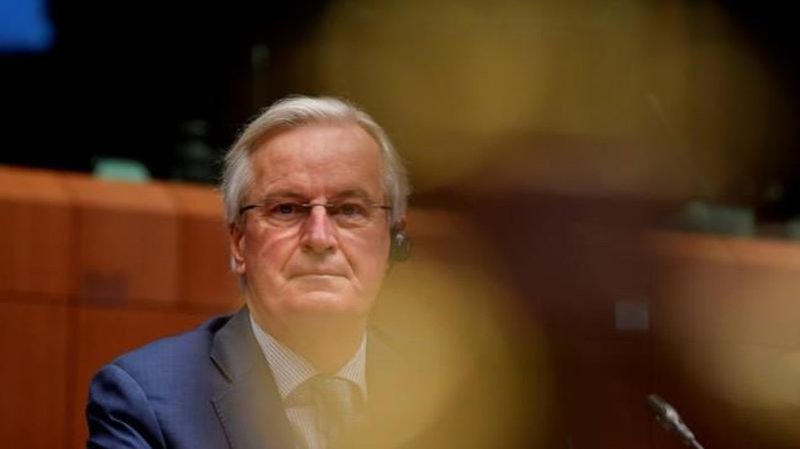
No visible progress yet on key day for final Brexit deal
BRUSSELS — One of the most intense days in the long-running Brexit trade negotiations started off with little good news about any progress Monday, with the United Kingdom and the European Union seemingly still stuck on the same issues that have dogged the standoff for months.
EU chief negotiator Michel Barnier held a pre-dawn briefing with ambassadors of the 27 member states to see if a deal is still possible with London ahead of the Jan. 1 deadline, but had no news of a breakthrough.
Irish Foreign Minister Simon Coveney said Barnier’s message was “very downbeat.”
“I would say he is very gloomy, and obviously very cautious about the ability to make progress today,” Coveney told Irish broadcaster RTE.


